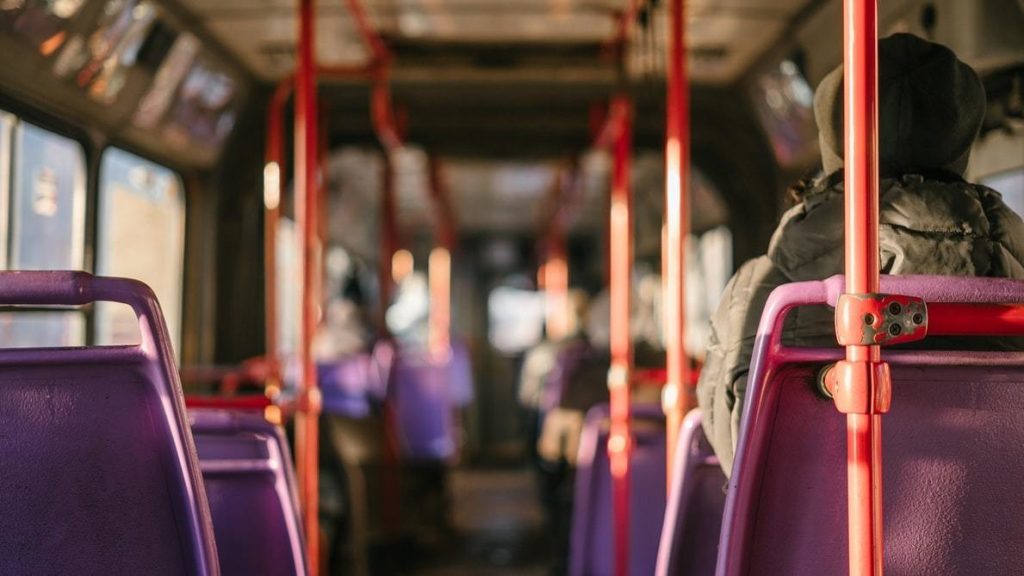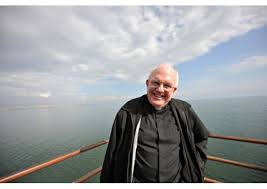
Je ne regrette rien
We believe that to revitalise, churches need to become more relational. Management culture, so widely adopted in the drive to modernise, has profoundly affected the character of the church. Often, professionalised habits can act as barriers against authentic, life-giving moments of transformation. Here, in a typically candid, warm and profound reflection on his own leadership, Archbishop Emeritus Patrick Kelly explores his role in “keeping the shop open” while missing the point of the Gospels. This is his personal story, written in conversation with Jenny Sinclair from Together for the Common Good.
An Archbishop’s Confession
I have two favourite songs: Je ne regrette rien, and, from the musical Salad Days, We said we wouldn’t look back.
But give the wise person the opportunity and they will grow in wisdom. That is why people open to the wisest love, the generous love of the Holiest, are not predictable in their use of words. Nor are they consistent in their discernment; they are never bored or boring. They know they are pilgrims.
So too, are disciples of him who says “follow me”, and obey “come and see” – as far as into a pierced side and broken heart. Truly listening, they are not smoothly consistent: they are unpredictable, like the wind. And like storms on Galilee’s lovely sea, they disturb complacent boats tied up in safe harbours.
My first inconsistency: I will share a regret. I regret I did not, from my ordination as bishop, set aside the use of a car.
My intention to use time more efficiently may have distanced me from people. For the Lord works through encounters such as on public transport. And the benefits are mutual: those who may, on the face of it, have little to give, have the ability to bring us closer to what really matters.
My second inconsistency (to add to my apparent concern to come closer to those with access to fewer resources): when I had a car, I also employed a driver.
To make it worse, in apparent superiority I sat in the back.
I had discovered that driving is a total waste of time. But sitting in the back I seized time to pray, to complete my daily reading of the Scriptures, to read over texts for a lecture or homily. Or, in all honesty, just to close my eyes and rest between two demanding commitments.
But, regrettably, only now do I glimpse what having no car might have opened up.
With no car at all, I would not have been able to “pop in” to things. Instead of several journeys to and from home each week, it would have been wise, and a blessing for me, and others, when visiting parishes, to spend time in one place, to accompany people.
Not only that, but it would have been wise to use public transport intentionally. Conversations overheard on buses confront us piercingly with the concerns of others. Usually light years away from a typical agenda for an ecclesiastical meeting. I deliberately say ecclesiastical, which means to me “keeping the present show on the road.”
But an ecclesial meeting means something different: the priorities, the responsibilities, the harnessing of the resources for (and from) koinonia – our fellowship as one family, one body. That body is blessed with massively diverse members, each one in need and needed.
It would have been more wholesome to stay for a week or two. I would have been able to taste what life was for the people there. I might have appreciated less superficially their civic commitments, their participation, their relationships, their tragedies and hopes, their efforts to reach out to neighbours troubled in body, mind and spirit.
Having a car meant I made short appearances. Like time spent behind a wheel, such passing attention wastes time. Despite increasing the variety of photo opportunities.
Even with a car I tried, when invited to contribute to a conference, to stay for the whole event. Not popping in, or dropping down, like some Deus ex Machina. The real sharing begins when you leave the security of the platform, the authority of the lectern, to stand vulnerable in the coffee or lunch queue.
My third inconsistency: I regret the “keeping the ecclesiastical show on the road” approach. It does not enable that vulnerability to occur. In all humility, we must find again the joy of re-discovering.
As a Church, and as parish congregations, we must build a culture of encounter. With families and individuals, and especially with those who are struggling in our neighbourhoods. We must build a shared life, a sense of family that is reciprocal and mutual. Not only because they need a hand up, but primarily because, as Pope Francis says, the poor evangelize us. He goes on to say that “they enable us to discover in new ways the true face of the Father. They have much to teach us. It is necessary that we all let ourselves be evangelized by them.”
In true dialogue we open ourselves to encounter, which we cannot, with integrity, reject. It is a frightening prospect which is why so many avoid it.
But way more frightening is the prospect of settling into camps, believing we have no need of relationship with each other. Francis asserts that “acts of charity presuppose a giver and a receiver, whereas the poor will always be with us [so this] should summon us to a mutual sharing of life that does not allow proxies.”
Spending time getting to know people from different circumstances opens human beings to surrender, to being steered into new directions. This is the only sustainable way to build a common good.
The path of indifference leads to mutual ignorance, to estrangement, and eventually to fear, tribalism, mutual demonisation and violence.
Free expression and robust conversation are necessary to accomplish an adequate, shared sense of truth. The scrutiny of dialogue is vital and bears fruit.
Therefore there has to be a break with selectivity – of data, bias, prejudice, personal, local, national, racial. Whatever is self-centred or self-referential blocks the road to accomplished truthfulness.
I am a retired archbishop and some will laugh at my inconsistency, my ridiculous break with a way of life which has been so predictable.
But when our professional roles draw us away from relationship, we are deprived of what is life-giving. This can lead us to arrive at the wrong conclusions. We miss out on encountering the Lord through others. We silence the sheer, wondrous, curious delight of he who had nowhere to lay his head. We miss out on his sparkling mind, all he saw, felt, witnessed, received; we neglect the opportunities to be filled with the guiding Spirit, we lay aside growth in wisdom and in graciousness before his Father and each other.
I dream of the triumph of the ecclesial over the ecclesiastical, for unhurried time spent with others. For leaving the car aside, for listening on the bus. For being attentive, for accompanying one another – each of us rich and poor in so many different ways – in this unpredictable pilgrimage. Like boats disturbed by the wind of the Spirit, I pray we can rediscover joy and listen for how our Lord is calling the Church to be transformed.
Je ne regrette rien, but it is never too late to learn.
Patrick Kelly

Patrick Kelly is Archbishop Emeritus of Liverpool. Born in Morecambe in November 1938, he served as Rector of Oscott College, then was ordained Bishop of Salford, then served as Archbishop of Liverpool from 1996 to 2013. He was Vice President of the Catholic Bishops’ Conference of England and Wales from 1999-2009. Archbishop Kelly formerly led the Holy Land Co-ordination, an international gathering of bishops who make an annual pilgrimage to the Holy Land to stand in solidarity with Christians in the region. He is also President of the International Catholic Foundation at the service of deaf people, a consultor to the Pontifical Commission for International Justice and Peace and a member of the Bishops’ Conference Department of International Affairs. He is retired and lives in Southport.
This story was featured in the 2021 summer edition of the T4CG Newsletter.
If you found it meaningful, you can explore more content like it by subscribing to Together for the Common Good on Substack.
